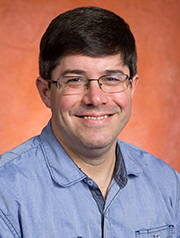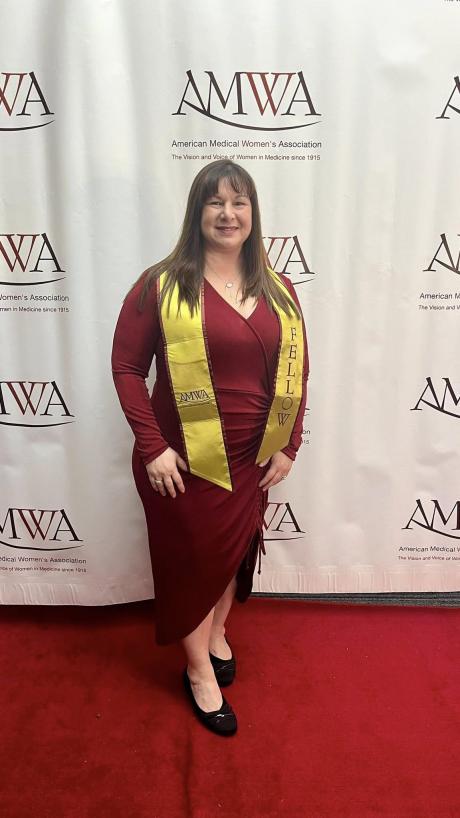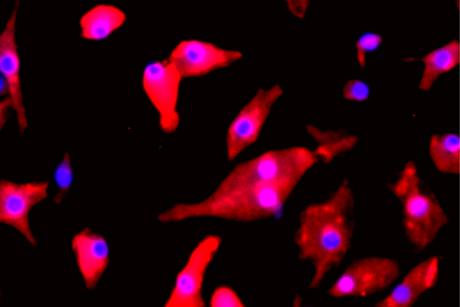2025: A Year of Milestones
Dear Students, Faculty and Staff:
Although I have been with the College of Medicine for more than 22 years, 2025 will mark the first full academic year that I will serve as dean. When I first came on board in 2002, the college had 54 full-time faculty members; today, we have 186, along with nearly 3,000 part-time clerkship faculty who serve as the backbone of our clinical education program.
This year we will celebrate a number of milestones. Our Alumni Relations Department is hard at work planning a 20th anniversary reunion for the M.D. Class of 2005, our first graduating class. Our regional campuses in Orlando, Pensacola and Tallahassee where those students completed their third and fourth year are also planning celebrations. Additionally, the Sarasota Regional Campus is celebrating the 20th year of its opening and in June, we will mark the 25th anniversary of the establishment of the College of Medicine by the Florida Legislature.
Today, our alumni base is more than 2,500 strong (M.D., Physician Assistant, Ph.D. and Bridge alumni), with most practicing or working in the State of Florida. However, according to a report commissioned by the Florida Safety Net Hospital Alliance and the Florida Hospital Association, our state will have a shortage of nearly 18,000 doctors within the next 10 years. We are doing our best to bridge this gap by graduating outstanding physicians to meet the needs of Floridians and also training skilled physician assistants who will serve as vital members of the health care team. Additionally, our graduate medical education program continues to grow and in July we plan on adding several more residency programs under our umbrella (more to come on that!).
The research enterprise at the college is also growing — and not just for our faculty. We are constantly finding ways to include our students in research projects to help them more fully develop the critical-thinking skills they need to be effective health care professionals and to meet the needs of their inquisitive minds. Adding to the successful Summer Research Fellowship Program led by faculty at the College of Medicine and FSU, just last year, seven M.D. students took part in the inaugural FSU-Mayo Clinic Summer Research Fellowship Program at Mayo Clinic Florida, based in Jacksonville. The 10-week program took place in the summer between the students’ first and second years at the College of Medicine. This year, nine students will take part.
Through this partnership, our students gain hands-on experience in a world-class academic health center. To see the impact it has on their view of a career in medicine is amazing — and I think partnerships such as this are just the beginning. Research in all disciplines has always been a priority of Florida State University and it’s gained laser focus through ASPIRE, the university’s research strategic plan, as well as the creation of FSU Health, for which the college is a major driver. These initiatives will undoubtedly open more doors in education, research and clinical care for our students.
Considering all the changes to federal and state requirements regarding research as a whole, some may consider this to be a challenging time. But, at the college, we also view this as a time of opportunity — a time when we re-double our commitment to our faculty and their research. We are focusing efforts on work that will truly benefit the citizens of Florida and our nation and finding ways to ensure our faculty, staff and students have the tools and resources they need to continue their important work. In partnership with FSU’s Office of Research, we continually update our community on important changes happening at the federal and state level and will continue to work with our faculty to address any concerns they may have.
Just one example of our success is the Institute for Pediatric Rare Diseases (IPRD) which has gained attention for its work not only in Florida, but also worldwide. The Institute, led by Pradeep Bhide, Ph.D., and championed by Florida State Rep. Adam Anderson (R-Palm Harbor), will bridge critical gaps in pediatric rare disease care by reducing diagnostic delays, improving health outcomes, providing support to affected families, and advocating for public policy changes. This will be accomplished through four specific programs: Rare Disease Research, a Whole Genome Sequencing Facility, a new Genetic Counseling Master’s Degree Program and a Pediatric Health Center.
Our Ph.D. Program in Biomedical Sciences continues to build on its success and reputation. In 2024, we admitted our largest class of 10 doctoral students. Each of our graduates contributes to the global strength of future scholars and scientific leaders and advances our understanding of some of the world’s most complex health-related issues.
The word is out that the FSU College of Medicine “is the place to be.” Student applications for our programs grow year over year, and we continue to attract outstanding faculty. Recently, we welcomed two members of national academies to our faculty ranks. Joining us are Regan Bailey, Ph.D., a member of the National Academy of Medicine, and Patrick Stover, Ph.D., a member of the National Academy of Sciences. Both will work to establish at new institute at FSU combining nutrition, genomics and health. Additionally, David Ledbetter, Ph.D., joins the IPRD as the university’s lone clinical geneticist and will oversee IPRD’s Whole Genome Sequencing Facility.
The caliber of faculty we are able to attract such as Drs. Bailey, Stover and Ledbetter, as well as all the new faculty joining us, speaks volumes to the reputation of the College of Medicine and the work being done here.
Although we have many successes and institutional milestones to celebrate — from anniversaries to the expansion and growth of programs — we have not lost sight of the most important and personal milestones of all. These include the admission of new cohorts of eager students, White Coat ceremonies, Match Day, commencements and all the personal victories and sacrifices experienced by our students along the way. We are very proud of each and every one of them — and remain committed to their success.
With Warm Regards,

Alma B. Littles, M.D.
Dean, FSU College of Medicine
 The exclusive, invitation-only forum is a key gathering of the ELHM program, which aims to increase the NAM’s engagement with exceptional, interdisciplinary early- to mid-career professionals working in biomedical science, population health, health care, health policy and related fields.
The exclusive, invitation-only forum is a key gathering of the ELHM program, which aims to increase the NAM’s engagement with exceptional, interdisciplinary early- to mid-career professionals working in biomedical science, population health, health care, health policy and related fields. 



